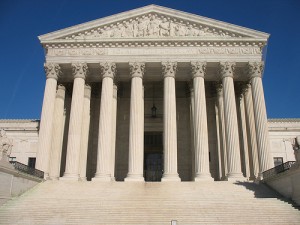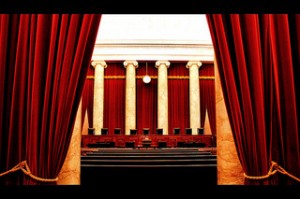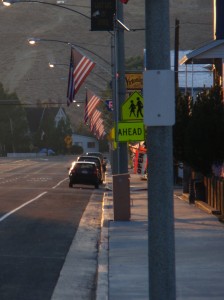Last Friday the Supreme Court’s docket went from boring to big with the grant of just one case: King v. Burwell. The issue in this case is whether tax credits for low and middle income health insurance purchasers are available under the Affordable Care Act (ACA) if insurance is purchased on a federal exchange rather than a state exchange. Only 16 states and the District of Columbia have established exchanges. 
The ACA makes tax credits available to those who buy health insurance on exchanges “established by the State.” The Internal Revenue Service (IRS) interpreted that language to include insurance purchased on federal exchanges too.
The Fourth Circuit in King v. Burwell upheld IRS’s interpretation, concluding that “established by the State” is ambiguous, when read in combination with other sections of the ACA, and could include federal exchanges. The “board policy goals of the Act,” persuaded the court that the IRS’s interpretation was permissible.
The implications of the Supreme Court ruling that health insurance purchased on federal exchanges is not eligible for subsidies is huge. Many people who want to buy insurance on the exchange would no longer be able to afford it without the subsidy. And many who don’t want to buy insurance, depending on their income, would no longer be subject to the individual mandate that penalizes people for not buying insurance. Similarly, large employers that don’t offer health insurance to fulltime employees would no longer have to pay a penalty.
More significantly, the Fourth Circuit (and many others) predict the ACA would “crumble” if tax credits are unavailable on federal exchanges. The ACA bars insurers from denying coverage or charging higher premiums based on a person’s health. The tax credit combined with the individual mandate was intended to create “an influx of enrollees with below-average spending for health care,” which would counteract adverse selection, where individuals disproportionately likely to use health care drive up the cost. Such an influx is unlikely without the subsidy.
The Supreme Court generally hears cases when there is a circuit split, meaning two federal courts of appeals have decided the same issue differently. Many were surprised when the Court agreed to hear this case given there is currently no circuit split, especially considering that last month the Court refused to hear a series of cases challenging the constitutionality of same-sex marriage bans. However, the Court also accepts cases involving “important question[s] of federal law,” which this case seems to raise.
On the same day in July a three-judge D.C. Circuit panel ruled opposite to the Fourth Circuit. The entire D.C. Circuit was going to rehear the case, but it has been asked to not rule in that case pending Supreme Court resolution of King v. Burwell.
Wondering how the Supreme Court may rule? SCOTUSblog offers an excellent symposium on this topic.
Image courtesy of Flickr from Kjetil Ree (creative-commons license, no changes made).












